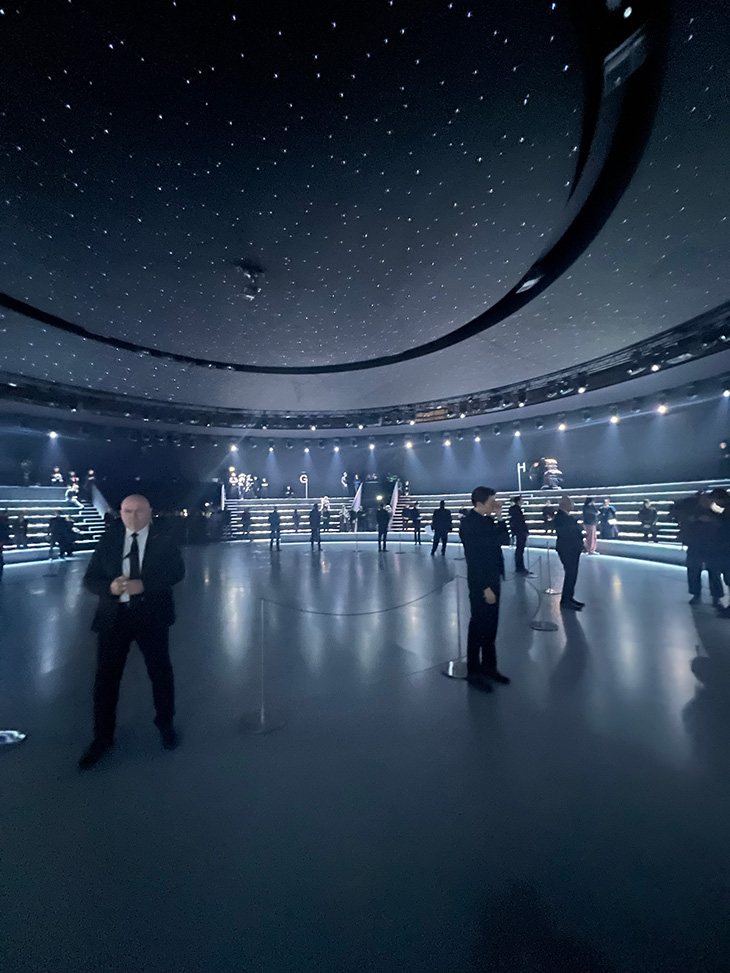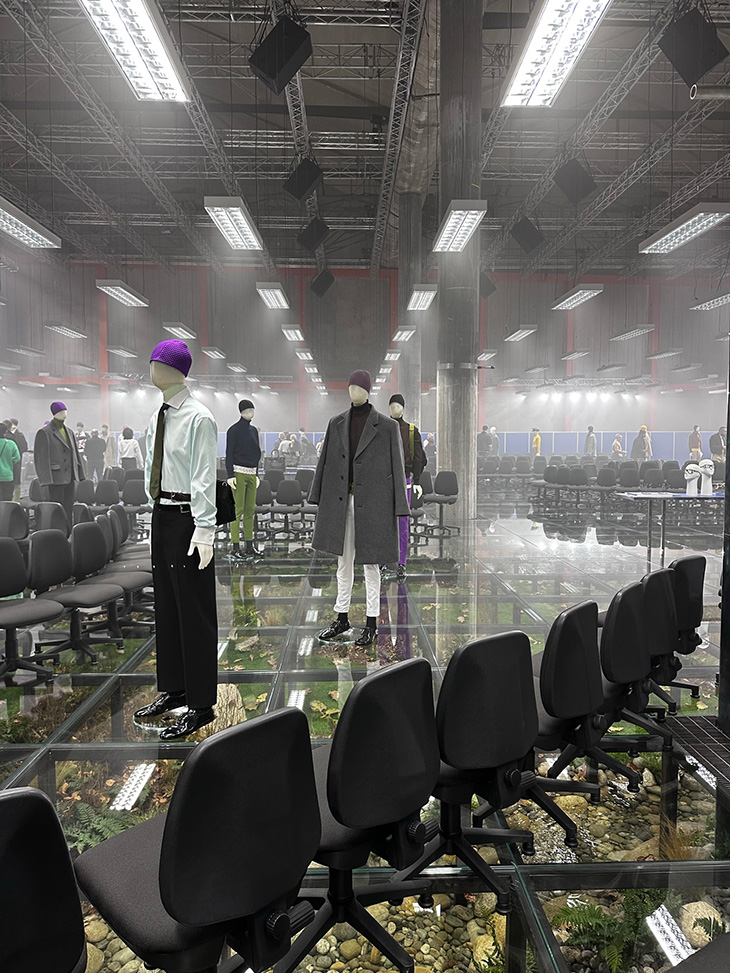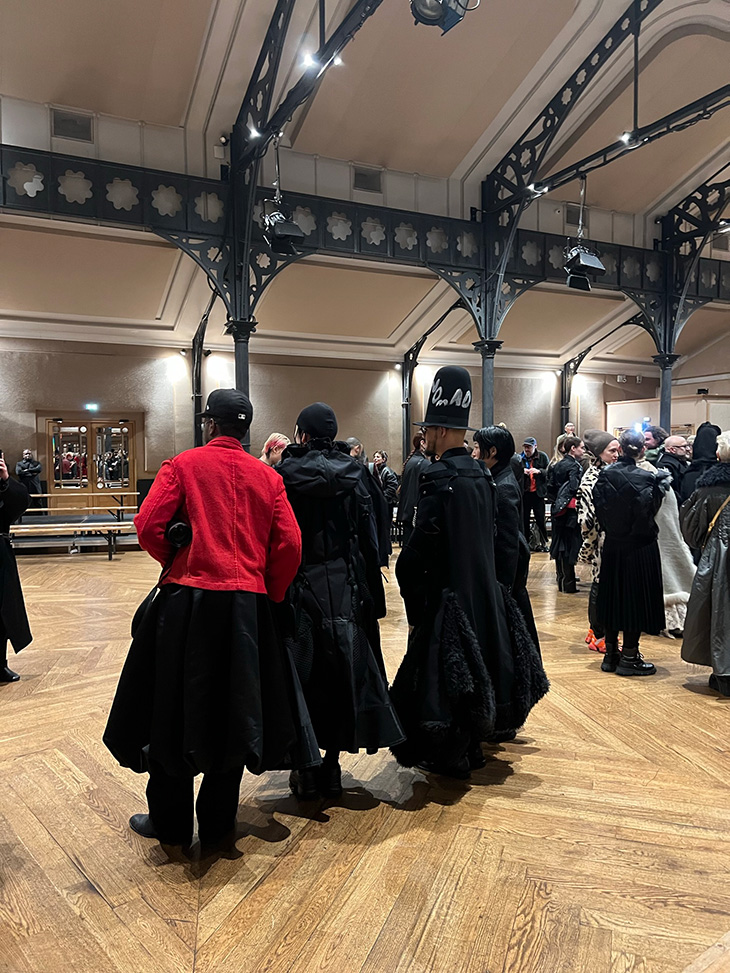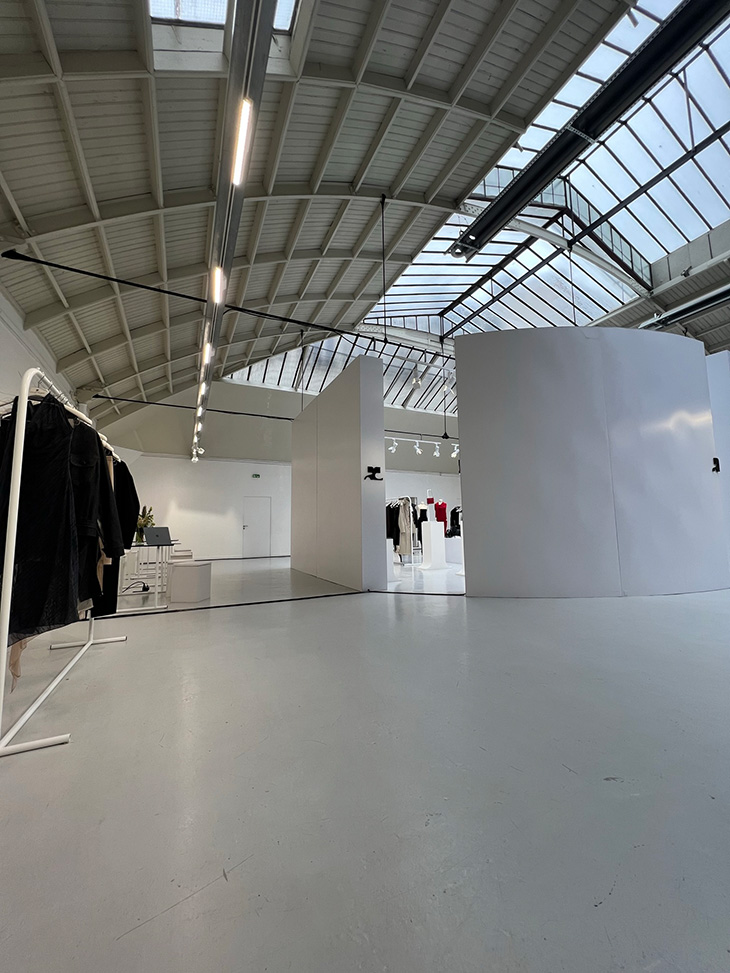
High is the word of today’s article. High-end events are usually high-stakes events. Navigating them is a lot of things. Easy isn’t one of them. But one thing we can do is try to make things easier. DSCENE editors talk about challenges of organizing a high and event, after talking to production managers of some of the most important fashion week runway shows.
Organizing high-end events such as fashion shows is an intricate dance that requires precision, attention to detail, and flawless coordination. But these events aren’t limited to fashion. The information is good for a corporate gala or a luxury product launch. Today, we’ll explore innovative solutions for managing upscale events, drawing lessons from the fashion industry.
We will also introduce field service technologies (FST) as a crucial tool to enhance efficiency and success. You’re about to be equipped with actionable insights that will elevate your event planning game.

The Unique Challenges of Managing High-End Events
High-end events present a unique set of challenges beyond the usual logistical concerns. These events demand a level of perfection that leaves no room for error.
Here are some of the complexities you might face while working on such a production:
- Precision: Every detail, from lighting to seating arrangements, must be in perfect alignment with the event’s theme and objectives. In the world of fashion, first impressions are everything.
- Attention to Detail: The slightest oversight can tarnish the event’s prestige. Meticulous planning may annoy your workforce, but it’s essential for getting the job done right.
- Seamless Coordination: Multiple teams. Total harmony. That’s the only way you’ll pull it off and make everything flow smoothly from start to finish.
Understanding these challenges is the first step toward effective event management.

Traditional Methods and Their Limitations
For years, if not decades, event planners have heavily relied on traditional methods like spreadsheets, email chains, and manual checklists. In the age of field management software, no one has any business continuing to use such simply said dinosaur tech.
Sure. These tools have their merits. They got the job done. But they got it done slowly and inefficiently. All too often, they fall short in the high-pressure environment of upscale events.
Here are some of the limitations:
- Manual Errors: Human error is inevitable, and mistakes can be costly.
- Time-Consuming: Manual processes are more labor-intensive than Mongolia’s Olympic uniforms and consume valuable time. Do you really have time to burn? Probably not, right?
- Lack of Real-Time Updates: Traditional methods cannot provide real-time updates, leading to potential miscommunications and delays. Because you need more setbacks in your life…
These limitations underscore the need for more sophisticated solutions in event planning.

4 Ways Technology Is Benefiting High-End Event Management
The fashion industry has long been at the forefront of technological innovation, and event planning is no exception. Let’s explore some of the ways technology has revolutionized high-end event management:
1. Streamlined Communication and Collaboration
New technologies allow for seamless communication and collaboration between multiple teams. With just a few clicks, you can update your entire workforce with important information, making it easier to coordinate tasks and ensure everyone is on the same page.
2. Real-Time Updates and Tracking
With these tools, you can track every aspect of your event in real-time, from ticket sales to guest arrivals. This enables you to make quick decisions and address issues before they escalate, keeping your event on track and running smoothly.

3. Automation and Efficiency
You’ve probably heard that AI is making everyone’s life easier. It can make yours easier, too. These tools offer automation features that simplify scheduling, invoicing, and data entry tasks. This saves time and reduces the risk of human error, ensuring a seamless and efficient event planning process.
4. Data Analysis for Improved Planning
Last but not least, data. It’s the main reason AI became so huge. The snowball effect came from people wanting it to do more and more.
The fact is that AI allows for better data collection and analysis. That provides insights into attendee behavior, preferences, and feedback. That information can then be used to improve future events and tailor them to meet the specific needs of your target audience.

Tech Is the Future of Event Planning
The role of these amazing resources in event planning will only grow as technology continues to evolve.
Future advancements will likely include:
- AI-Powered Analytics: Predictive analytics will help planners make better decisions.
- Virtual Reality: VR could allow planners to visualize events in 3D, making it easier to do…well…pretty much everything.
- Enhanced Mobility: Mobile platforms will make it easier for teams to access information and communicate on the go.
Staying ahead of these trends will ensure that you remain competitive in the dynamic world of high-end event planning.

Be Smart By Using the Right Smart Solutions for Your Event
Embracing modern technology is a necessity. Traditional methods hinder efficiency and accuracy, posing unnecessary constraints in an industry where precision and perfection are paramount. Innovative tools and solutions allow event planners to streamline communication, automate processes, and leverage data to refine future events.
Integrating these tools will enhance the attendee experience and position you for success in an increasingly competitive landscape. The future of event planning lies in the smart solutions we adopt today, paving the way for unforgettable experiences tomorrow.




















those show spaces are sublime! I can only imagine the hard work going behind it! I absolutely love the Alexander McQueen space, it’s a shame you couldn’t see that on the runway video, it is spectacular. Rochas one is gorgeous as well!